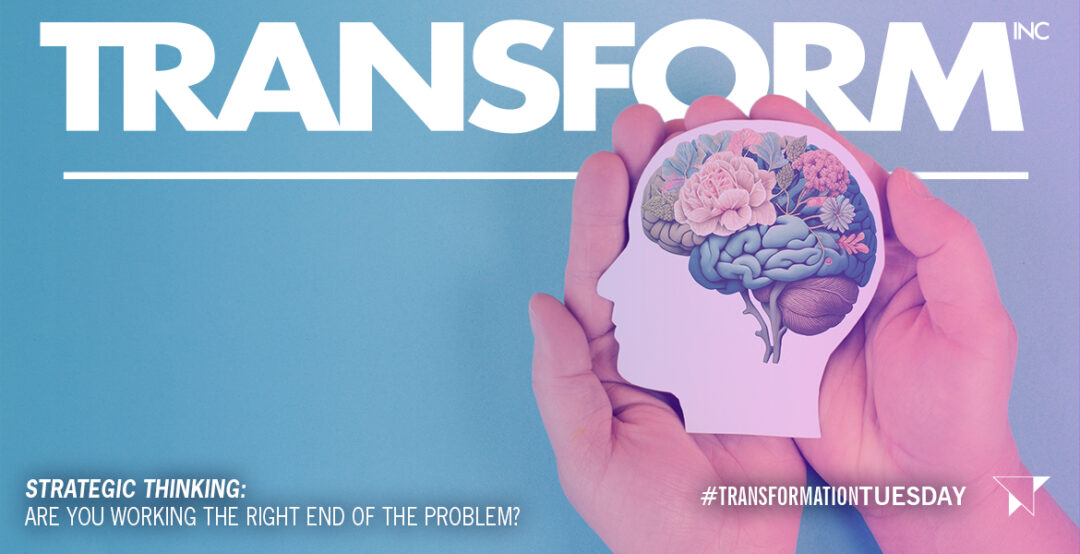In any given coaching situation, I find myself asking, “Are you being strategic?” or “What’s your strategy?” There are times when I wonder if that specific line of questioning is driven by my Enneagram Type (6) or if it is because when I was growing up, I was schooled by a dad who often reminded me that I could be “working the wrong end of the problem.” Dad taught me to step back, think for a moment, and examine the issues for what they truly are.
I understand how essential it is for my clients to reflect on whether they have given enough thought to their approach. I work in the world of Business where we often desire important outcomes. When my clients share with me significant situations they are trying to work through to create an effective next step or learn something valuable from for the future, I can see/feel where their emotions might have taken over. Perhaps they wanted to get a particular difficulty over with or longed to hear what they wanted to hear. Maybe they appear to be defensive because they weren’t grounded. Obviously, none of these states are ideal for creating the outcomes they are hoping for, but they are great fodder for learning and growing.
Then there are other times when they were super clear and thoughtful about their “strategy.” They knew where they wanted to go and had the grounding and wisdom, and yes, the right strategy to stay on track. They could also remain flexible to what was happening in the moment. When they have that clarity, they can reset almost instantaneously when needed. They don’t let themselves get off track easily, and when they do, they can quickly sort out what to do next because they know where they want to end up.
Recently, there’s been much importance placed on accessing our emotional center, which, for the record, I believe is a beneficial thing. I equally value the role good old-fashioned thinking plays in developing strategy, but ultimately, integrating our Head, Heart, and Gut seems to make for the best strategy.
So, here’s Transform’s take on Strategic Thinkers. My hope is that these ideas will help you reflect on how strategic you are in both work and life.
- Strategic Thinkers have the ability to use the logical and creative parts of their brains.
- They can create a clear vision, and they often envision how to help themselves or others to achieve that vision.
- They can define their objectives clearly, develop a strategy and plan of action, breaking actions down into tasks with defined timelines.
- They have an innate ability to be proactive and anticipate a few steps ahead, rather than being reactive to situations after they occur.
- They are amazingly aware and perceptive.
- They will recognize internal and external factors, often subtle, to help guide their strategy.
- Strategic Thinkers are often committed lifelong learners who learn from experience and incorporate what they’ve learned into their strategy.
- They value and seek advice from trusted others.
- They balance creativity with a sense of realism and honesty about achievability.
- They have the ability to be patient and to not rush to conclusions and judgments.
While there’s no strategy that is perfect, it feels wise to have a great one. I fancy myself an accomplished strategist, and it enlivens me to work on finding the right approach. A good deal of my coaching is in building, improving, or changing strategy for individuals and organizations. If you or your company could benefit from or want to discover the value of elevating your strategy game, reach out to schedule a conversation.
Mary Anne Wampler
PRINCIPAL, TRANSFORM, INC.




